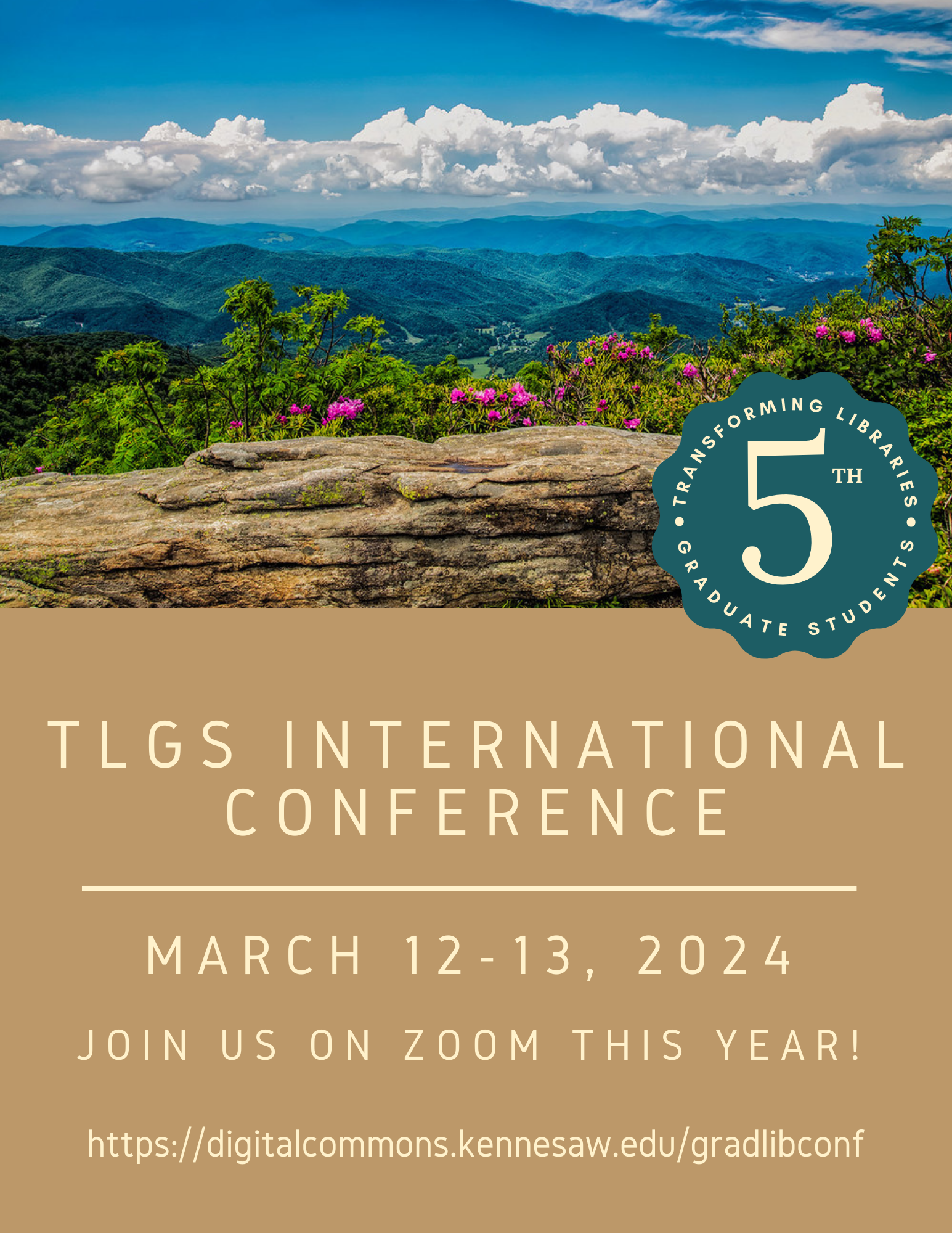Loading...
Start Date
3-12-2024 2:00 PM
End Date
3-12-2024 2:30 AM
Keywords
Research, IRB
Description of Proposal
Current events and research trends related to COVID, climate change, diversity, equity, inclusion, and accessibility, mental health, social justice, as well as other public health and social issues have heightened the need and demand for human subject research projects across all disciplines, including librarianship. Librarians and archivists serving at all types of repositories, including government, public libraries, local museums and cultural institutions, historical societies, corporate libraries, hospitals, or universities, have a crucial stake in collecting and preserving materials that support this current scholarship. Graduate students and new professional librarians and archivists need to be trained and prepared to serve as partners in the research enterprise and undertake human subject research projects in a variety of venues. Such projects serve as springboards for peer-reviewed publications, white papers, and other steps towards promotion or tenure, while increasing the status and influence of librarianship in the academic community, as well as public and private sectors. Potential roles that librarians and archivists can take include serving as lead investigators, as collaborators with other research professionals, or participating as members of an institutional review board. Engaging in human subject research necessitates an understanding of applicable laws and policies related to ethics and privacy, study protocol development, as well as federal, state, institutional, or funding agency requirements, and a general awareness of the shifting dynamics of international law.
This presentation will examine recent experiences supporting graduate students conducting human subject research and serving as a member of an institutional review board. Using participatory polls, the presentation will identify learning gaps that can be addressed, roles that librarians and archivists can play, common misconceptions held by graduate students related to human subject research, and misunderstandings about exclusions and exemptions. We will also consider different ways that librarians and archivists can stand ready to work side by side with experts in allied fields and a variety of disciplines. Finally, the presentation will encourage discussion on how to advocate for more graduate programs and professional development entities to incorporate opportunities into their curricula that teach, promote, and support human subject research.
Supporting Graduate Students Conducting Human Subject Research
Current events and research trends related to COVID, climate change, diversity, equity, inclusion, and accessibility, mental health, social justice, as well as other public health and social issues have heightened the need and demand for human subject research projects across all disciplines, including librarianship. Librarians and archivists serving at all types of repositories, including government, public libraries, local museums and cultural institutions, historical societies, corporate libraries, hospitals, or universities, have a crucial stake in collecting and preserving materials that support this current scholarship. Graduate students and new professional librarians and archivists need to be trained and prepared to serve as partners in the research enterprise and undertake human subject research projects in a variety of venues. Such projects serve as springboards for peer-reviewed publications, white papers, and other steps towards promotion or tenure, while increasing the status and influence of librarianship in the academic community, as well as public and private sectors. Potential roles that librarians and archivists can take include serving as lead investigators, as collaborators with other research professionals, or participating as members of an institutional review board. Engaging in human subject research necessitates an understanding of applicable laws and policies related to ethics and privacy, study protocol development, as well as federal, state, institutional, or funding agency requirements, and a general awareness of the shifting dynamics of international law.
This presentation will examine recent experiences supporting graduate students conducting human subject research and serving as a member of an institutional review board. Using participatory polls, the presentation will identify learning gaps that can be addressed, roles that librarians and archivists can play, common misconceptions held by graduate students related to human subject research, and misunderstandings about exclusions and exemptions. We will also consider different ways that librarians and archivists can stand ready to work side by side with experts in allied fields and a variety of disciplines. Finally, the presentation will encourage discussion on how to advocate for more graduate programs and professional development entities to incorporate opportunities into their curricula that teach, promote, and support human subject research.



What takeaways will attendees learn from your session?
Following the presentation, participants will be able to:
Identify when a project qualifies as human subject research
Understand the difference between exclusions and exempt research studies
Articulate the roles that librarians and archivists can serve in a human subject research project
Better support graduate students conducting human subject research